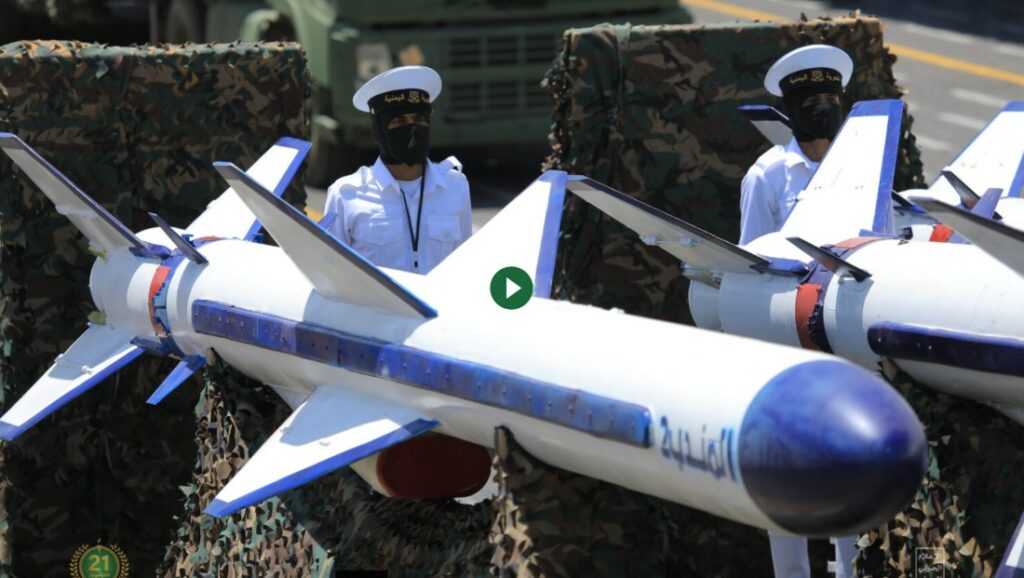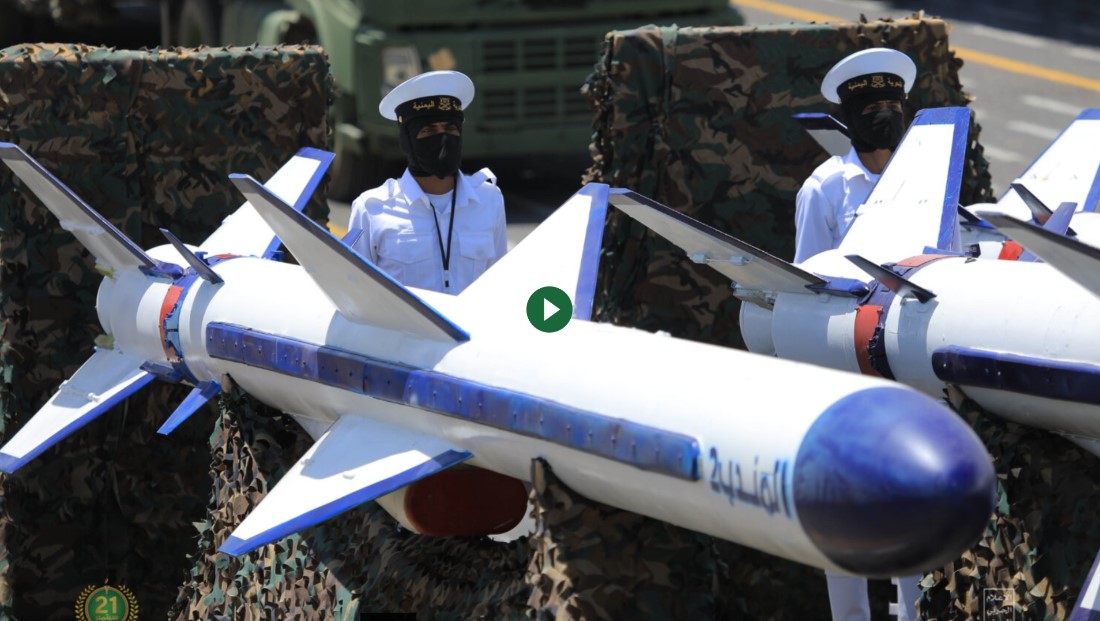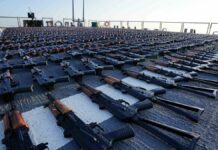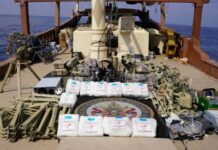Defying the retaliatory US and UK air strikes that were aimed at deterring them, the Yemen-based Houthi militia have continued to target shipping in the Red Sea and on 15 January 2024 struck the US-owned cargo vessel with an anti-ship ballistic missile.
In a statement the same day US Central Command (CENTCOM) said the container ship, Gibraltar Eagle, reported no injuries or significant damage and continued on its way. CENTCOM added, however, that another anti-ship ballistic missile had been fired toward the southern Red Sea commercial shipping lanes earlier in the day but had “failed in flight and impacted on land in Yemen”.
The previous day, 14 January, CENTCOM reported that an anti-ship cruise missile had been fired from Houthi territory in Yemen at the Arleigh Burke-class destroyer USS Laboon, which was operating in the southern Red Sea, but that the missile was shot down in vicinity of the coast of Hudaydah by US fighter aircraft with no injuries or damage reported.
Meanwhile, on 16 January CENTCOM reported that on 11 January, while mounting a flag verification mission, its naval forces had conducted a night-time seizure of a dhow conducting illegal transport of advanced lethal aid from Iran to resupply Houthi forces in Yemen.
“US Navy SEALs operating from [expeditionary mobile base vessel] USS Lewis B Puller (ESB 3), supported by helicopters and unmanned aerial vehicles (UAVs), executed a complex boarding of the dhow near the coast of Somalia in international waters of the Arabian Sea, seizing Iranian-made ballistic missile and cruise missiles components,” CENTCOM stated. “Seized items include propulsion, guidance, and warheads for Houthi medium-range ballistic missiles (MRBMs) and anti-ship cruise missiles (ASCMs), as well as air defense associated components. Initial analysis indicates these same weapons have been employed by the Houthis to threaten and attack innocent mariners on international merchant ships transiting in the Red Sea.”
This was the first seizure of lethal, Iranian-supplied advanced conventional weapons to the Houthis since the beginning of Houthi attacks against merchant ships began in the Red Sea region in November 2023.
“The dhow was deemed unsafe and sunk by US Navy forces. Disposition of the 14 dhow crewmembers is being determined in accordance with international law,” CENTCOM stated.
These latest incidents drive home what an intractable issue Western military forces face in curtailing the Houthi attacks, the mere threat of which is forcing international shipping companies to reroute their vessels around Africa at considerable extra time and expense. The Western forces in the Red Sea region will have to mount a larger military operation to comprehensively protect shipping from Houthi attacks, while the degradation of the Houthis offensive capabilities in air and missile attacks like those mounted by US and UK forces on 11 and 13 January can be mitigated by further supplies of war materiel to the Houthis from their backers in Tehran.
For Iran, meanwhile, the Houthis provide the means of creating a significant headache for the West while Iranian forces remain at arm’s length from any military action.
Hostile Houthi action against international shipping in the Red Sea region began in response to the Israel Defense Forces’ campaign against Hamas militants in Gaza following Hamas’ terrorist attack on southern Israel on 7 October 2023.














